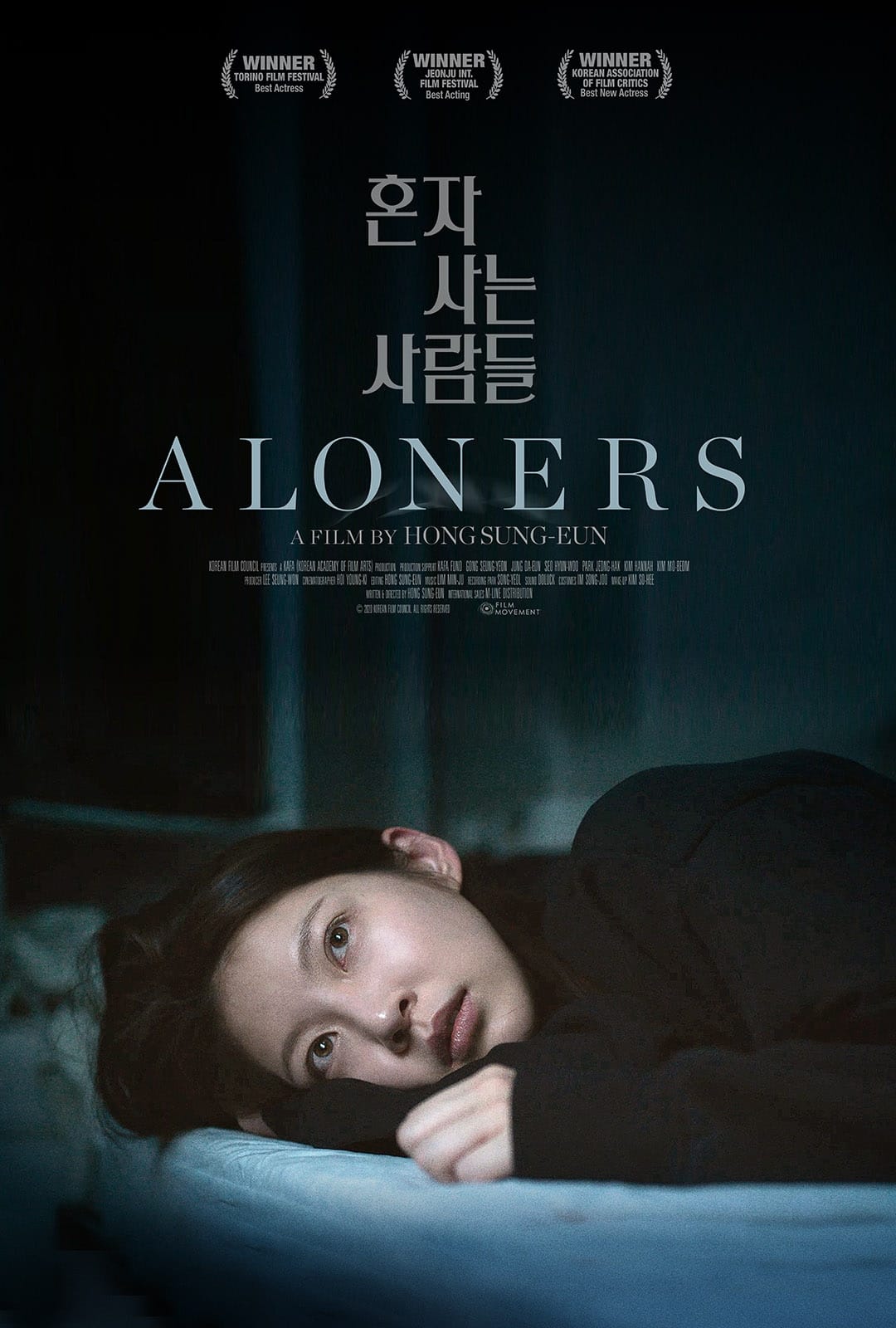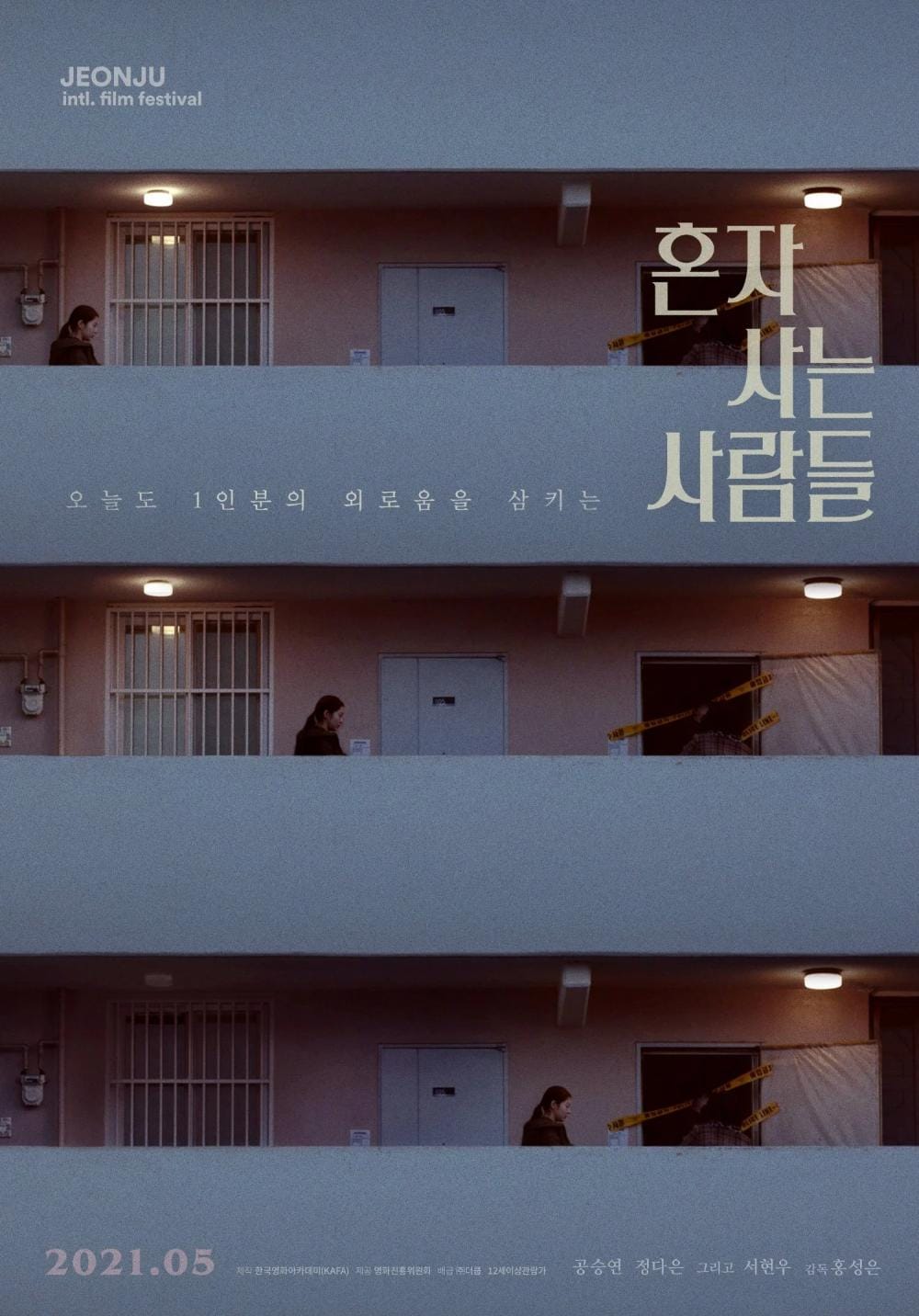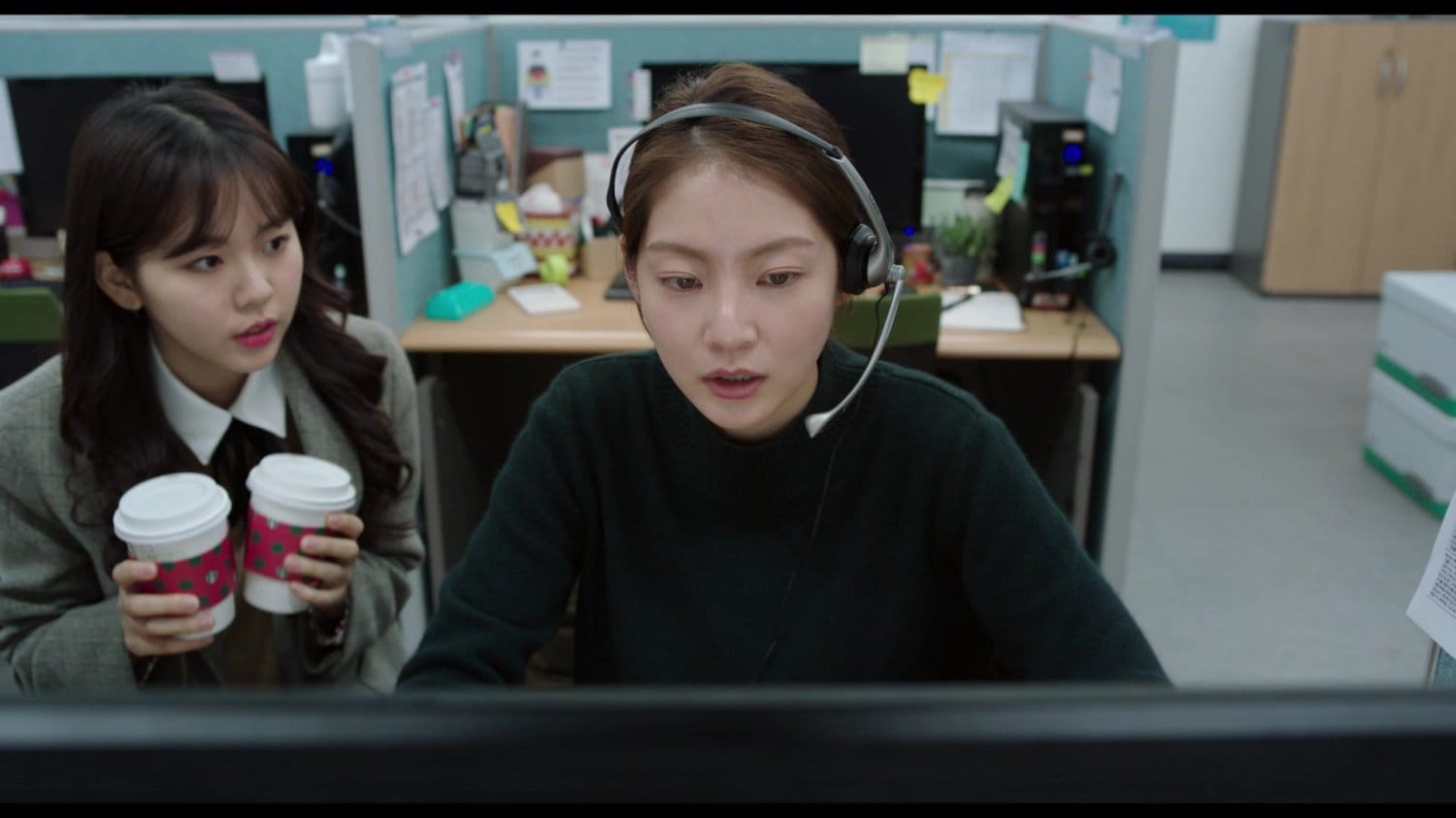Aloners
Alone again, naturally

Jina works at a credit card company call centre, and avoids building close relationships, choosing instead to live and work alone. But when her irritating neighbour is discovered dead, after having died alone in his apartment, Jina begins to question her isolated lifestyle.

Jina is the best there is at her customer service job, easily navigating the difficult interactions that come with the daily deluge of nonsense calls from obnoxious and demanding asshole customers with stupid issues. Throughout it all, she’s efficient and polite. She puts the callers at ease, she gives them space to vent, she listens, and she responds sympathetically. She connects with them and attempts to solve their problems.
This is surprising because, outside of work, Jina keeps to herself. She wears her headphones everywhere, blocking out the noise of life. She smokes alone. She eats by herself in the same booth at the same ramen shop counter. Each night, she goes home alone, makes her dinner, sits on her bed, and watches cooking shows until she falls asleep. Outside of work, she barely talks to anyone.
She moves through her little world, alone.
The reason that Jina is so good at her job is because she doesn’t engage, she doesn’t get upset or react emotionally, she just sticks to the script of prompts that her job provides. Because of her reliable success and continual efficiency, her boss turns to her for help training in a new employee. That’s how Jina finds her small and singular world suddenly invaded by Sujin, a wide-eyed and chatty twentysomething who’s new to the city, inexperienced, and looking to make friends and connections.
Jina hates this.

Still reeling from her mother’s recent death, the main impetus for her life of aggressively-protected solitude, she is hurt and angry at her father’s reaction to her mother’s death, as well as his attempts to move on with his own life, all of which she watches from a hidden camera that she placed in his home, so this sudden new imposition into her space, the constant jibber-jabber, the demand for interaction, it's all too much for Jina. She is thrown off balance by Sujin’s constant presence, and the general disruption it brings to her deliberately curated life. Not the best communicator on a face-to-face personal level to start with, Jina can't understand why Sujin is having such an issue with catching on to the rhythm of the job, and her disinterest in this training role, not to mention her anger and grief, as well as her general preference for solitude means that she doesn't know how to explain things to her other than with just curt directions.
Jina's struggles only get worse when, after complaining about a strange smell coming from the apartment next door, the resulting investigation finds that her neighbor has died alone within, after having been crushed under his massive collection of porn.
And if that wasn’t bad enough, Jina quickly realizes that he’s been dead for at least a week, and yet… she’s seen him in the apartment hall repeatedly in the last couple of days. In fact, he’s one of the few people she has talked to recently outside of work, which she was really annoyed about each time.
Her tightly maintained facade of control is slipping.
Jina is uncomfortable and upset. She us struggling at work, with her old routine, with her old neighbor's death, with her mother's death, with her father's new life at his church, and with her new chatty new neighbor being intrusive and chatty, and when Sujin quits, she finally breaks down, resulting in a tearful and angry blowout with her father. It is only after seeing her new neighbor, along with his own friends and family, holding a small ceremony for the old neighbor’s spirit, that she decides to break down her walls a little bit, and makes some hesitant attempts to possibly socialize with her boss and with Sujin… maybe, in the future sometime. She also reaches out to her father and, in an effort to begin to build a small bridge between two people who don't know how to act around each other in person, she tells him about the hidden camera in the house, and lets him know that she will use it to check in on him more often in the future.

One thing that I really appreciated about Aloners, is how it isn’t just about the social isolation and loneliness of modern life, especially with so much work done over the computer these days, it’s also about the burden that comes with so many of our daily “small” social interactions, the things we’re told that we must tolerate to be a good person and a good citizen, whether it's the inanity of small talk, or the unfair imposition of other people and their demands upon one’s life.
It's rare that a film will present this with such honesty, as usually the act of choosing solitude is treated as being weird and selfish as best, or some kind of a mental illness or malevolent villany at worst. Where most films would portray Jina as selfish and self-absorbed, or aloof, or just weird—and to be fair, the film does do this in some ways—Aloners also shows her as someone who is unsatisfied with the greater world, and as a result, she is someone who is unwilling to tolerate the false niceties, the meaningless chatter, or the mediocre concerns. Jina is someone who is grieving, yes, and her isolation is definitely part coping strategy, but it also her preference, as she is someone who has found the world around her to be lacking, and so she chooses herself instead.
I like that.
The film also doesn’t treat Jina as a problem to be solved, at least, not on society’s terms. I think some people will find this unsatisfying, but I found it oddly hopeful. Yes, the end of the film shows her possibly emerging from her self-imposed exile, not only reaching out for connections, but perhaps even looking for a new job, and thus, a new era in her life, but the key is... this is all on her terms.
To have Jina at the end of the movie suddenly veer into "new" life of her smiling vacantly and going to office happy hours, spending time outside of work to engage in smalltalk with acquaintances, strangers, and work associates would be a life that is tedious and unbearable for Jina. It would be false to pretend that her surrendering to the external pressures of society and submitting to this arduous and trivial daily life torture would be a good thing. Instead, by looking for the amount of external connections that she will personally find to be tolerable and satisfying, you get the feeling that Jina will be all right, that she's finding a good balance, even if she does mostly choose to live a solitary life that prioritizes her own wants and needs.
That was really nice. I liked that. I liked how the film doesn’t try to “fix” Jina.
It's true, Aloners is a melancholy film, a quiet observation on modern-day life in a capitalistic society. It is sad and atmospheric, not to mention slow-paced. It feels like it's a COVID movie without being about COVID at all. But to me, it was a film that asks what value your working life truly has? Who would mourn you there, in that life, if you were suddenly gone? And does that even matter? Because that’s the key, I think, the film asks what truly matters in life, and it’s clear that the answer is… it depends on who’s asking.
